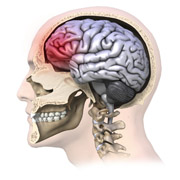Research and Innovation, UNL Office of

Center for Brain, Biology, and Behavior: Faculty Publications
ORCID IDs
JF Duque, 0000-0002-2655-8526
JR Stevens, 0000-0003-2375-1360
Document Type
Article
Date of this Version
2018
Citation
Published in Biology Letters 14 (2018), 20180105.
doi 10.1098/rsbl.2018.0105
Abstract
Many species exhibit prosocial behavior , in which one individual’s actions benefit another individual, often without an immediate benefit to itself. The neuropeptide oxytocin is an important hormonal mechanism influencing prosociality in mammals, but it is unclear whether the avian homologue mesotocin plays a similar functional role in birds. Here, we experimentally tested prosociality in pinyon jays (Gymnorhinus cyanocephalus), a highly social corvid species that spontaneously shares food with others. First, we measured prosocial preferences in a prosocial choice task with two different pay-off distributions: Prosocial trials delivered food to both the subject and either an empty cage or a partner bird, whereas Altruism trials delivered food only to an empty cage or a partner bird (none to subject). In a second experiment, we examined whether administering mesotocin influenced prosocial preferences. Compared to choices in a control condition, we show that subjects voluntarily delivered food rewards to partners, but only when also receiving food for themselves (Prosocial trials), and administration of high levels of mesotocin increased these behavior s. Thus, in birds, mesotocin seems to play a similar functional role in facilitating prosocial behavior s as oxytocin does in mammals, suggesting an evolutionarily conserved hormonal mechanism for prosociality.
Supplementary Methods (Subject information, detailed procedure for habituation/training and experimental phases, and additional analyses (weighted prosocial/altruistic tendency) and figures
Duque_et_al_2018_rcode.R (32 kB)
This Rcode is for Duque et al. 2018 Mesotocin influences pinyon jay prosociality. It is annotated for replication of all results, figures, and analyses. Absolute tendency appears in main text; Weighted tendency in supplementary.
Included in
Behavior and Behavior Mechanisms Commons, Nervous System Commons, Other Analytical, Diagnostic and Therapeutic Techniques and Equipment Commons, Other Neuroscience and Neurobiology Commons, Other Psychiatry and Psychology Commons, Rehabilitation and Therapy Commons, Sports Sciences Commons


Comments
Copyright © 2018 J. F. Duque, W. Leichner, H. Ahmann, and J. R. Stevens. Published by the Royal Society. Used by permission.